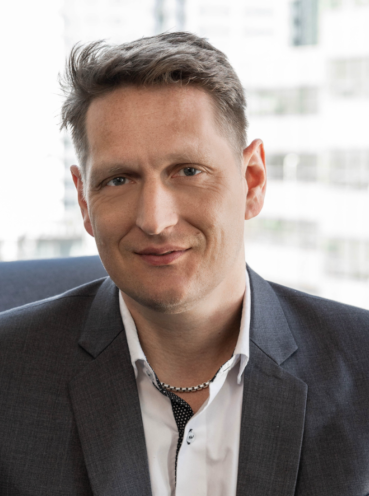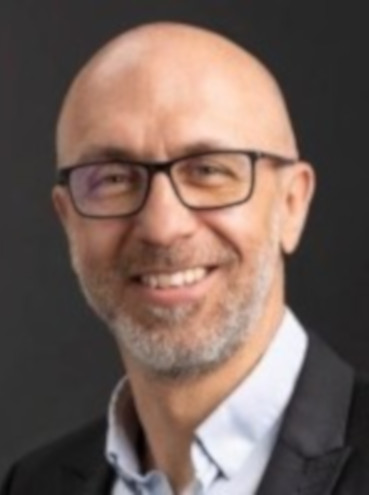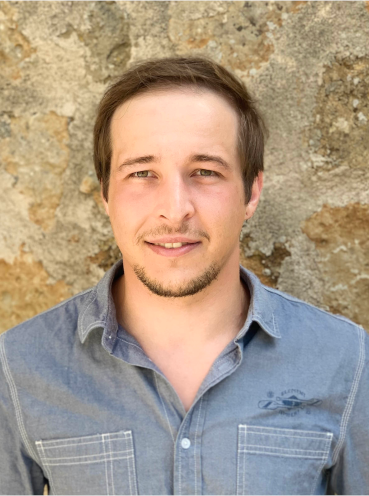
Title: RAIN enabled smartphones: challenges and opportunities
Abstract: UHF passive RFID (RAIN technology) has been designed to improve supply chain visibility by enabling high speed and accurate inventories. RAIN is widely deployed on products within manufacturing, logistics and sales, where the tags are read at ranges of up to ten meters to facilitate automation and manual operations as controlled by widely deployed information systems. Emerging legislation such as the EU Digital Product Passport (DPP) will result in RAIN tags becoming embedded in many everyday products, including textiles, to drive the circular economy and reduce the harm of consumerism. The combination of consumer RFID readers (smartphones), and embedded RAIN tags will unlock new business opportunities and take technology adoption to the next level. In order to achieve these goals, several technical challenges need to be resolved (e.g., antenna integration and directivity, near field operation, automatic tag detection, tag data reporting, etc.). The presentation will list most important challenges to be addressed and seek for the support of the academic community in resolving them.
Dr. Claude Tételin is currently Senior Director in the AIDC team at GS1 Global Office. He received his PhD from University of Lille in France in 1996 and began his carrier as full professor of wireless telecommunications and RF engineering at ISEN-Toulon where he specialized in NFC and RAIN technologies. During 10+ years, he was Technical Director of the French RFID National Centre. His main tasks were to support the implementation of RFID technologies. He is currently involved in ISO/IEC JTC1/SC31 work groups and is Project Editor of RFID conformance and performance standards. Since 2015, he has been chairman of the European standardization committee CEN/TC225. Since January 2019, he has joined GS1 Global Office as Subject Matter Expert for EPC/RFID standards and is the Project Editor of GS1 Gen2 Air Interface Protocol.

Title: What is quality in RFID tags and how to master it
Voyantic is the leading company in the development of test solutions for performance and quality for the manufacturers of RAIN RFID tags. In this presentation, we will dive into what quality really means in RAIN tags, how does quality needs differ for different business sectors, what does lack of quality look like and what are the processes to follow for different levels of quality.
Jesse Tuominen holds a Master’s degree in Electronics and Measurement Technology and a PhD in Laser Physics and Optical Telecommunication. In 2006, he joined Voyantic as a Product Manager and partner, playing a pivotal role in the early development of RAIN technology. By 2009, Jesse had taken on the role of Chief Technology Officer (CTO). As the lead hardware designer for many years, he spearheaded the creation of groundbreaking product families such as Tagformance and Tagsurance. Today, Jesse focuses on advancing new measurement methods, RF design, product prototyping, standardization, protocols, and intellectual property rights (IPR).

Title: E-Thread, Durable RFID embedded in a yarn
Boris Vigaud is an Arts et Métiers engineer with 29 years of experience in the high-tech industry. He began his career in the design of optronic systems before moving into management positions in strategic purchasing, within leading technology companies (THALES, LYNRED, SOITEC, etc.). These experiences have allowed him to acquire a global vision of industrial challenges and innovation. For the past 3 years, he has been Managing Director of PRIMO1D, a company specializing in embedded electronic solutions, where he supports his team in the development of disruptive technologies for multiple sectors

Title: Sensory UHF RFID: Design Considerations and IoT Opportunities
Abstract: The convergence of IoT and wireless technologies has created a significant demand for autonomous, battery-free sensing solutions. Sensory UHF RFID tags are emerging as a key enabling technology, offering the ability to harvest energy and transmit data about the surrounding environment. This presentation highlights the key design considerations that allow our EPC Gen2 compliant technology to transform standard passive tags into powerful, battery-free wireless sensors. We will detail our optimized approach to ultra-low-power management and enhanced radio-noise immunity. This robust design accommodates our series of on-chip sensors and allows for seamless integration with external components such as thermistors, moisture sensors, and accelerometers, paving the way for a new generation of scalable IoT applications.
Sofia Benouakta, received her M.Sc degree in Electrical Engineering from the University of Montpellier (France) in 2016. She started her PhD at Ampère Lab at the University Claude Bernard Lyon 1 (France) in 2018, focused on the development of an RFID textile yarn with augmented capabilities.This work was in close collaboration with Primo1D, (patent’s owner of E-Thread technology). In 2021, after receiving her PhD degree in Telecommunications, she pursued her career as a postdoctoral researcher working on antenna solutions for integrating Near Field Communication (NFC) into a textile yarn. In 2022, she joined Asygn’s team as an RFID Application engineer specialized in the design, simulation and characterization of antennas assembled with the AS321X chip family to form batteryless UHF RFID sensor tags. The main objective of her work is optimizing the antenna performance while taking into consideration the conditions required by the customer use case.

Title: Sustainability in RFID Inlay Manufacturing – A brief comparison of technologies
Abstract: Circular Economy, Digital Product Passports and Carbon Footprint Analysis – Sustainability moves more into focus in our society and therefore for every industry. But sustainability is not limited to products used by the end consumer, it should also be considered in the manufacturing process of RFID inlays. This presentation gives an overview of inlay structures as they are used within Tageos and compares them in terms of manufacturing process, performance and carbon footprint.
Sebastian Rummler has 4+ years of experience in the RFID industry, starting as a technical Pre-Sales Engineer with hands-on involvement in the industrialization of paper-based, laser etched RFID antennas. He joined Tageos as Field Application Engineer in 2023 and transitioned over to the role of a Product Manager recently. As part of the Product Management team, he is further developing Tageos’ product portfolio with focus on RAIN RFID (UHF) technology.
He received his Diploma in Business Engineering from the Technische Universität Dresden (Germany) in 2019, with Majors in Operations and Logistics Management and Product Development.
